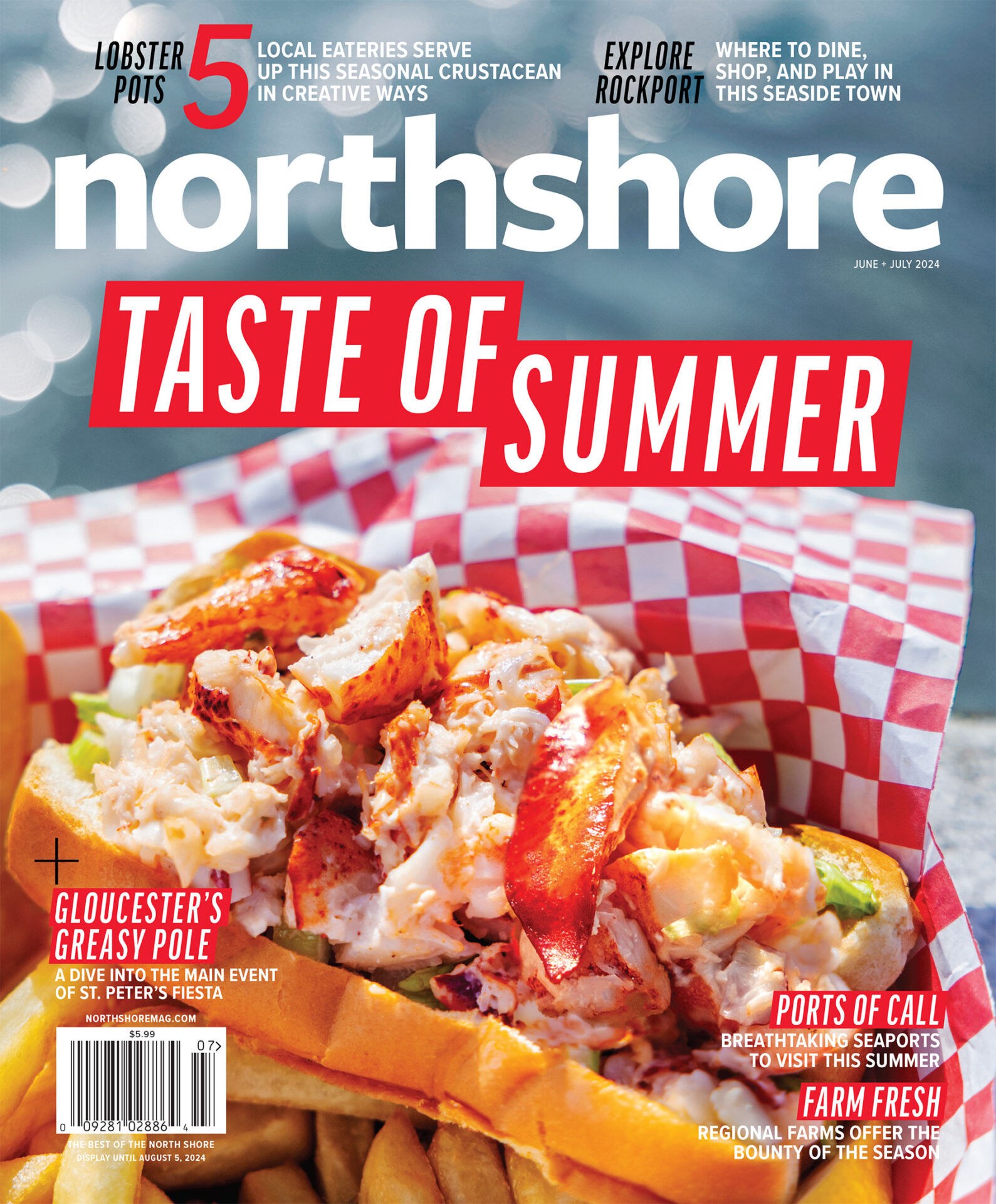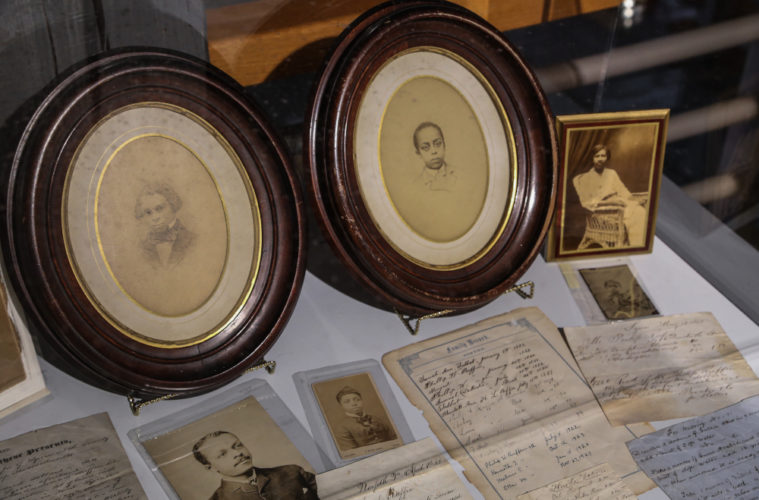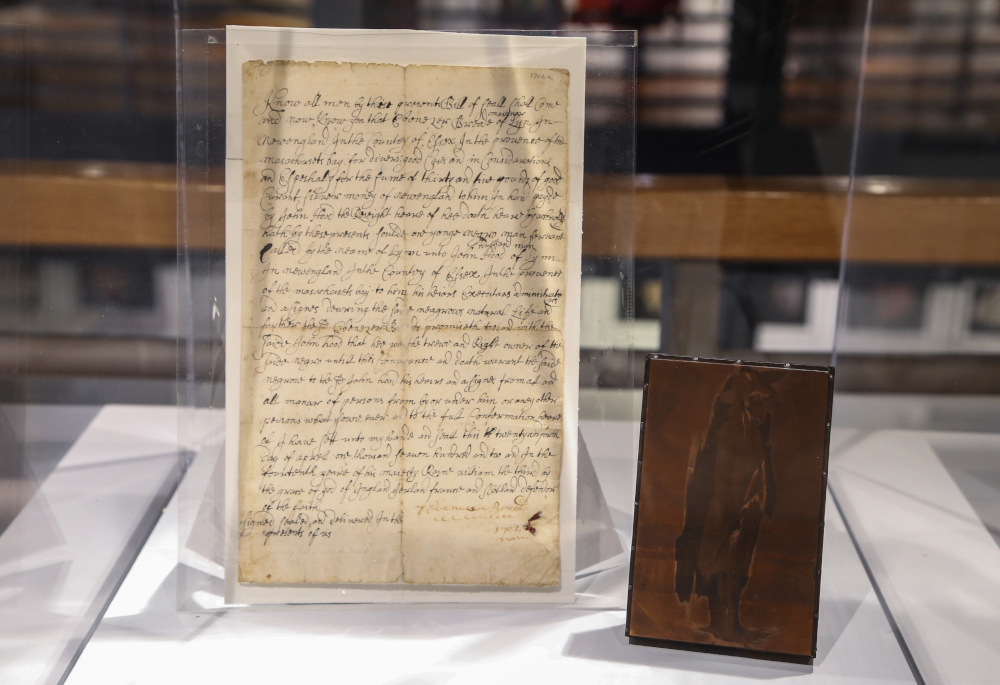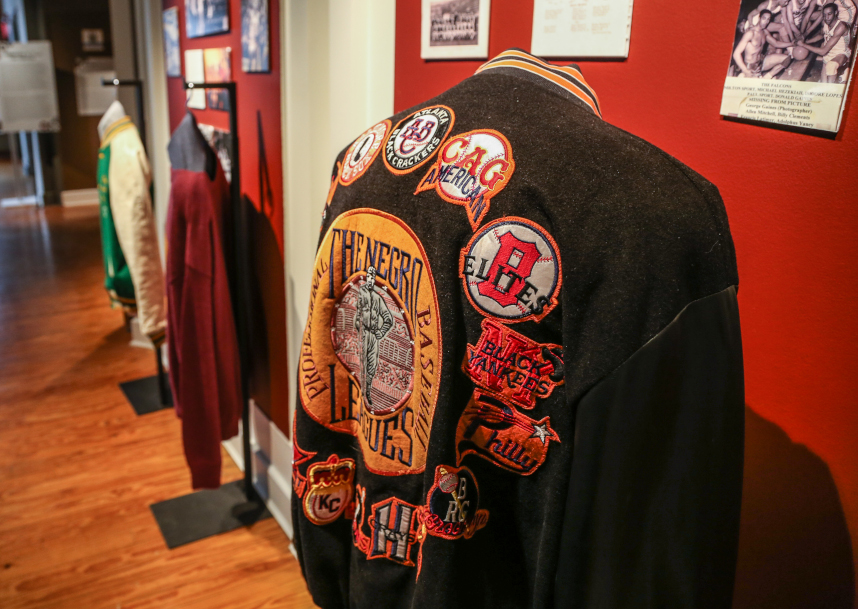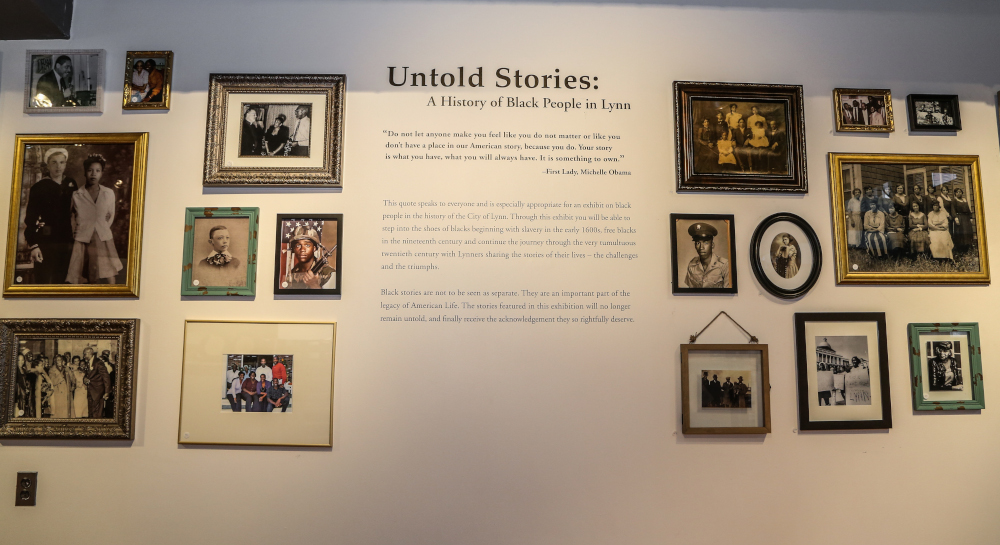Doneeca Thurston was born and raised in Lynn. She knows it as a city rich in diversity, with vibrant Black, Latinx, and immigrant populations. Yet, in professional settings, she has often felt alone as a Black woman.
“I sometimes feel like I am only person of color in the room and I know that’s not an accurate depiction of our community,” says Thurston, the first person of color to serve as director of the Lynn Museum. “Lynn’s Black history is Lynn’s history, and we need to claim it and celebrate it as such.”
It is this spirit that drives the Lynn Museum’s ongoing exhibition Untold Stories: A History of Black People in Lynn. The exhibit is a collaboration between museum and community, featuring stories and artifacts shared by Black residents of Lynn alongside items in the museum’s collection. The goal is to create an accurate and nuanced exploration of Lynn’s Black history.
The exhibit, which covers the years from the 1600s to present day, does not shy away from addressing slavery and racism. But it also acknowledges and celebrates the everyday joys and notable achievements to be found in Lynn’s Black community over the centuries. The artifacts on display include photographs, books, newspaper clippings, and personal items, like a varsity football jacket from the 1970s. The museum has also collected oral histories from local Black residents and plans to have more events for gathering these stories before the exhibit ends in June.
“We really wanted it to be the community’s voice to celebrate this history,” Thurston says.
The exhibit includes some historical Black residents who have had an impact well beyond the borders of Lynn. Frederick Douglass – who escaped from slavery before gaining fame as an abolitionist, orator, and author – lived in Lynn for a few years in the 1840s, during the time he was writing Narrative of the Life of Frederick Douglass, an American Slave. Jan Matzeliger, born in Suriname, moved to Lynn in 1877, where he invented and eventually patented a shoe lasting machine, an innovation that manufactured shows 10 times faster than a shoemaker could achieve working by hand. The innovation made high-quality footwear more affordable and available to average consumers.
Thurston will be appearing the the Cape Ann Museum on February 19 for Collecting and Exhibiting Untold Stories, a discussion of the responsibility museums have to collect and showcase untold stories from Black history. Also appearing will be Kyera Singleton, executive director of the Royall House and Slave Quarters in Medford.
“They have put serious effort into telling Black history and the history of slavery in Massachusetts,” says Cape Ann Museum director Oliver Barker. “I am hoping, through their examples, they can share ideas about how we can better tell these histories. It’s an important narrative.”
Down the street from the Cape Ann Museum, the nonprofit organizing the celebration of Gloucester’s 400th anniversary in 2023 is also working on an initiative to collect Black stories. Collecting oral histories has been central to the planning effort from the beginning. This month, the organization is kicking off a focused effort to make sure the stories gathered reflect the true breadth of Gloucester’s history.
The group has hired a staff member dedicated to guiding the oral history project and begun creating a spreadsheet to track the demographics of the stories they collect, to ensure they are proactively including everyone. It will be doing proactive outreach through media outlets and social media to recruit storytellers for the project. (In fact, Laura Ventimiglia, executive director of the nonprofit, asks any people of color who live in Gloucester or have ancestors from the city to reach out to mystory@gloucesterma400.org to share their stories.)
The effort is not just a feel-good attempt at diversity, Ventimiglia emphasizes. Without the stories of Black residents and other people of color, the project would be both incomplete and inaccurate, she says.
“All of the people and the lives build on top of each other to bring us where we are today,” she says. “We wouldn’t be telling the full story – we wouldn’t be acknowledging and honoring the full history.”
